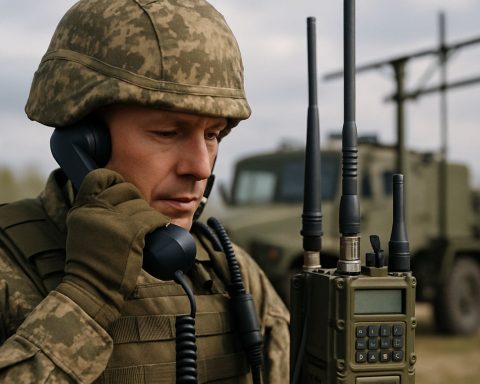Colt, Honeywell & Nokia Launch Groundbreaking Satellite Trial to Secure the World’s Data Against Quantum Cyber Threats
Colt, Honeywell, and Nokia join forces to pioneer quantum-safe encryption via satellites, redefining cybersecurity for a post-quantum world.
- 3 global tech giants unite for space-based quantum encryption
- 100 km: Previous QKD distance limit on fiber—satellites may go global
- Multi-billion dollar stakes for finance, government, and healthcare sectors
- 2025: New white paper charts path to quantum-safe networking
Imagine a world where no hacker—no matter how advanced—can break into critical financial, government, or healthcare data. That’s the vision driving the new partnership between Colt Technology Services, Honeywell, and Nokia. Their ambitious 2025 initiative will deploy Low Earth Orbit (LEO) satellites to test quantum-safe cryptographic technology on a truly global scale.
With rapid advancements in quantum computing, traditional encryption methods could soon become obsolete. Quantum computers threaten to crack today’s security algorithms, exposing sensitive data like never before. In response, these innovators are exploring the bleeding edge of cybersecurity: transmitting quantum keys far beyond Earth’s fiber-optic networks, right through the sky and across oceans.
What Is Quantum Key Distribution (QKD) — And Why Does It Matter?
QKD harnesses the fundamentals of quantum mechanics to securely swap encryption keys between locations. Until now, QKD’s reach was short-lived—limited to about 100 kilometers due to signal loss over terrestrial fiber. But leveraging LEO satellites blasts through that ceiling, potentially opening up secure, globe-spanning connections.
This shift is game-changing for industries storing ultra-sensitive information. Banks, government agencies, and hospitals stand to benefit by shielding their networks against quantum-powered cyberattacks that experts say could hit within the decade.
How Will Space-Based Quantum Security Work?
The trial will deploy satellites as cosmic couriers for quantum keys, allowing distant sites—even across continents—to share encryption secrets without leaking them to would-be cyber thieves. Test scenarios will include subsea deployments, extending protection across high-value transatlantic and intercontinental routes.
The collaboration also draws on Colt’s recent breakthroughs in terrestrial quantum-secure networking, integrating lessons learned on the ground with new capabilities from orbit.
Why Does This Matter for the Future of Data Security?
Quantum computing is projected to render many of today’s encryption systems obsolete by the end of the decade. This collaboration marks a proactive move to stay ahead of hackers. The jointly published white paper, The Journey to Quantum-Safe Networking, dives deep into the technical challenges and emerging solutions needed to future-proof our global infrastructure.
Forward-thinking initiatives like this are critical as organizations worldwide prepare for the quantum era. Even IBM and Microsoft are investing heavily in quantum technologies, reflecting the urgency and high stakes.
Q&A: Your Biggest Questions Answered
Q: When could quantum computers start breaking today’s encryption?
A: Experts predict viable threats within the next 5–10 years, making preparations urgent.
Q: Who benefits most from quantum-safe networking?
A: Any sector with sensitive data—especially finance, government, and healthcare.
Q: Is this technology limited by geography?
A: Not with LEO satellites. This trial could enable truly global, quantum-secure networks.
How Can Organizations Prepare Today?
- Download and review the new white paper on quantum-safe networking
- Evaluate current encryption standards for quantum vulnerability
- Monitor developments from Colt, Honeywell, and Nokia
- Engage with cybersecurity experts to assess transition plans
Stay ready as the quantum era dawns—review your data security now and take steps to future-proof your critical information!
Take Action Now: Your Quantum-Safe Checklist
- Stay updated on quantum threats from trusted sources like National Institute of Standards and Technology (NIST)
- Request access to Colt, Honeywell, and Nokia’s white paper
- Audit your current network encryption protocols
- Invest in employee training on quantum-safe strategies











